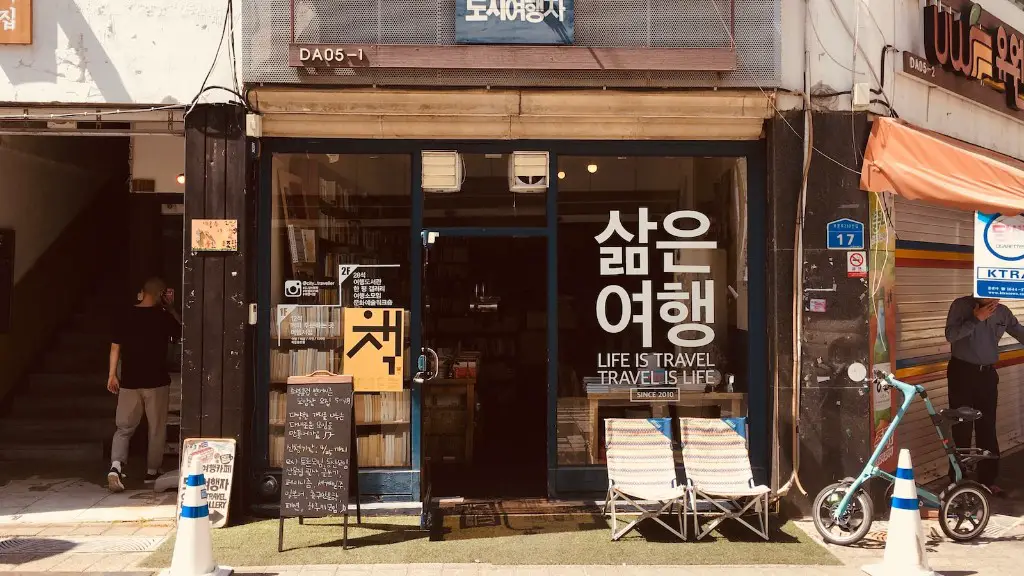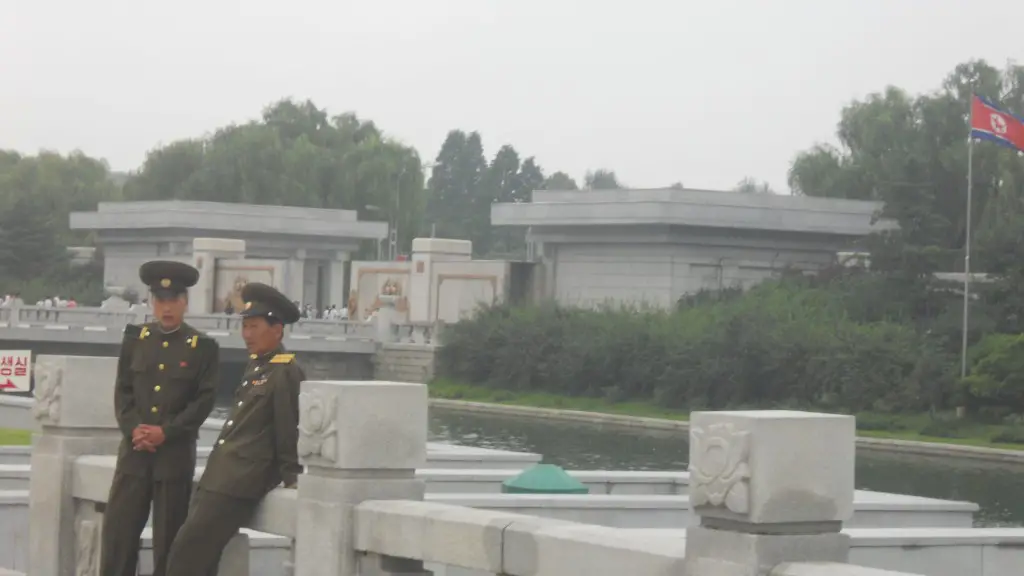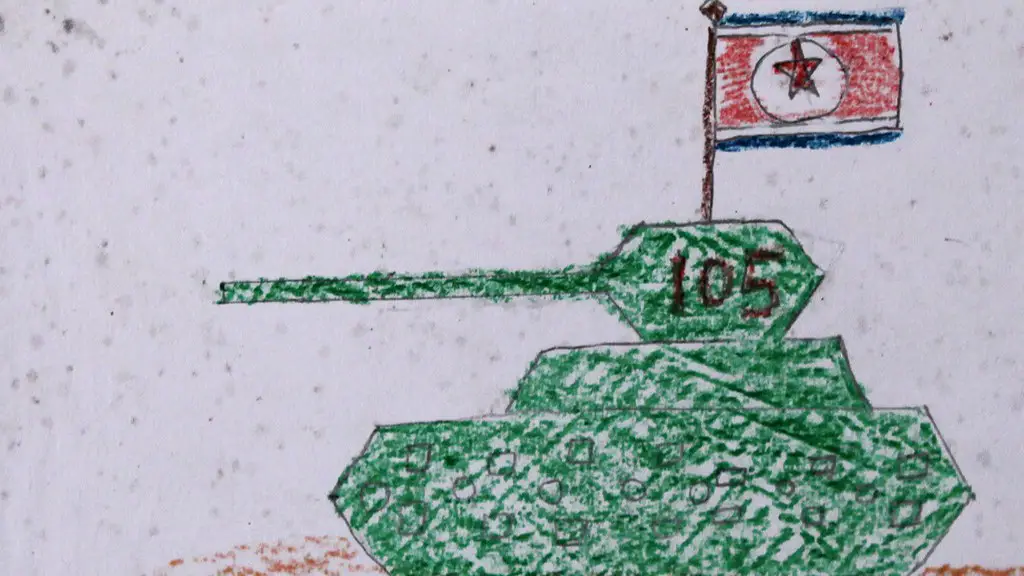Background
North Korea, officially the Democratic People’s Republic of Korea (DPRK), is a country located in the northern region of the Korean Peninsula. It is bordered by the Republic of Korea (ROK) to the south, China to the north, and Russia to the northeast. North Korea is an authoritarian state led by the family of the late Kim Il Sung and his son Kim Jong Un, and has been an isolated and heavily sanctioned nation for decades. The international community has long been concerned about North Korea’s human rights record and its nuclear ambitions. Moreover, like its southern neighbor, North Korea has struggled with economic difficulties.
Economic Struggles
Even though, the North Korean economy is believed to have grown since the early 2000s, its economic development has been hampered by multiple factors. To begin with, the nation’s closed economy has led to a significant deterioration of industrial infrastructure, as well as an erosion of its own monetary base. As a result, its currency – the North Korean won – has largely become worthless in the external market. Furthermore, the nation’s budgetary system has never been very effective in its use of resources, leading the nation to be reliant on bilateral aid for its existence. Additionally, the nation suffers from a chronic shortage of electricity, and despite initial attempts to modernize, it is still much behind other nations in resource utilization and technological advancement.
Political Fears
The situation in North Korea is also precarious from a political point of view. The nation’s supreme leader, Kim Jong Un, has yet to prove that he is capable of continuing his family’s legacy. Moreover, the nation is deeply embroiled in a power struggle with the United States over its nuclear ambitions. North Korea has so far succeeded in obtaining the technology needed to build nuclear warheads, which is a major fear for the countries in the region and the international community as a whole.
Furthermore, it is believed that the nation continues to develop chemical weapons, which could be used in the event of a war with South Korea. Additionally, there have been reports of immense political censorship, which prevent the citizens of North Korea from knowing what is happening outside the country. This lack of transparency has been a major concern for international human rights groups and democratic states alike.
International Actions
Given the circumstances, it is not surprising that the international community has imposed a series of measures against North Korea in an attempt to bring it into compliance with international law. From economic sanctions to diplomatic pressure, the nations of the world have sought to influence the regime in Pyongyang and prevent it from furthering its nuclear ambitions.
At the same time, other nations have made attempts to engage North Korea in a constructive manner. For example, the United States has sought to hold direct talks with North Korea over the issue of its nuclear program. Other countries – such as China, South Korea and Russia – have also played a role in seeking to find a peaceful solution to the crisis.
Cultural Identity
The people of North Korea have also had to face the repercussions of the nation’s difficult situation. Due to the regime’s repressive tactics, there has been a slow but steady erosion of the nation’s traditional culture. The Juche ideology, which emphasizes self-reliance, has been systematically replaced by a distinct cult of personality around the Kim family. Additionally, the nation’s eroding economy has made it difficult for citizens to access basic goods and services.
Moreover, it is believed that the nation has encouraged its people to view the outside world in a negative light, which has made it difficult for North Koreans to establish connections with the international community. This isolation has also led to tensions between North Korea and its neighbors, making it difficult for the nation to engage in meaningful diplomatic negotiations.
Human Rights Concerns
Finally, it is important to note that the situation in North Korea poses serious concerns to the international community. In particular, there have been numerous reports of human rights violations in the nation, including arbitrary arrests and torture of political prisoners. Additionally, it is believed that the nation systematically abuses the rights of its citizens, preventing them from accessing basic services and leading marginalizing them from the international community.
The international community has spoken out against these abuses, yet the situation remains dire. North Korea has continued to ignore international pressure and has yet to show any meaningful effort to improve its human rights records or to cooperate with the international community.
Economic Solutions
The world is waiting to see what kind of economic solutions North Korea is able to come up with. The nation’s best hope for success is to focus on attracting foreign investments, which would boost its economy and allow to actively engage with the global market. This would also open the door to possible assistance from international organizations such as the IMF and the World Bank, which are in a position to provide much needed aid.
At the same time, the nation should strive to improve its international relations. North Korea has already engaged in diplomatic negotiations with a number of nations, including the United States and South Korea, which is an encouraging sign. However, it is important that the nation takes further steps towards opening up to the international community, in order to ensure its economic development.
Political Negotiations
The international community is still hopeful that a peaceful solution can be found to the crisis in North Korea, but for this to happen the nation needs to demonstrate a sincere commitment to diplomatic negotiations. The United Nations has taken a clear stance in its call for denuclearization, and has also called for North Korea to stop its human rights abuses. The nation could start to comply with these requests by entering into a meaningful dialogue with the international community and the countries in its region.
North Korea should also strive to become more transparent, particularly when it comes to its decision-making process. This would allow for an open and honest dialogue between North Korea and its neighbors and potentially allow for a peaceful resolution to the crisis.
Social Infrastructure
Finally, North Korea must work to improve its domestic social infrastructure. The people of the nation have suffered greatly due to the regime’s oppressive policies, and they need to be allowed to access basic goods and services. This could be achieved by the nation easing its restrictions on civil liberties and supporting the growth of a free press.
In addition, North Korea should strive to promote the growth of civil society. This can be done by allowing more involvement by non-governmental organizations and increasing the participation of citizens in local matters. Doing so would allow for better representation of the North Korean people and would demonstrate to the international community that the North Korean government is committed to its people’s well being.
International Coordination
Given the increasing tension in the region and the complex nature of the crisis, it is essential for the international community to work together. Nations need to coordinate their efforts to ensure that the North Korean situation does not further escalate and that the country is able to develop peacefully, without compromising its principles of self-determination.
In this context, multilateral frameworks such as the United Nations’ Six-Party Talks could be extremely useful. Through such forums, states can not only present their positions but also discuss practical solutions to the crisis. Furthermore, such forums can provide a space for the sides to gain mutual understanding and create a consensus in order to reach an agreement.
Conclusion
North Korea’s current situation is highly precarious, with multiple domestic and international obstacles obstructing its development. To alleviate this dangerous and complex crisis, the international community must come together to promote peaceful negotiations and ensure that the nation and its people receive the support they need to transition towards a brighter future.


